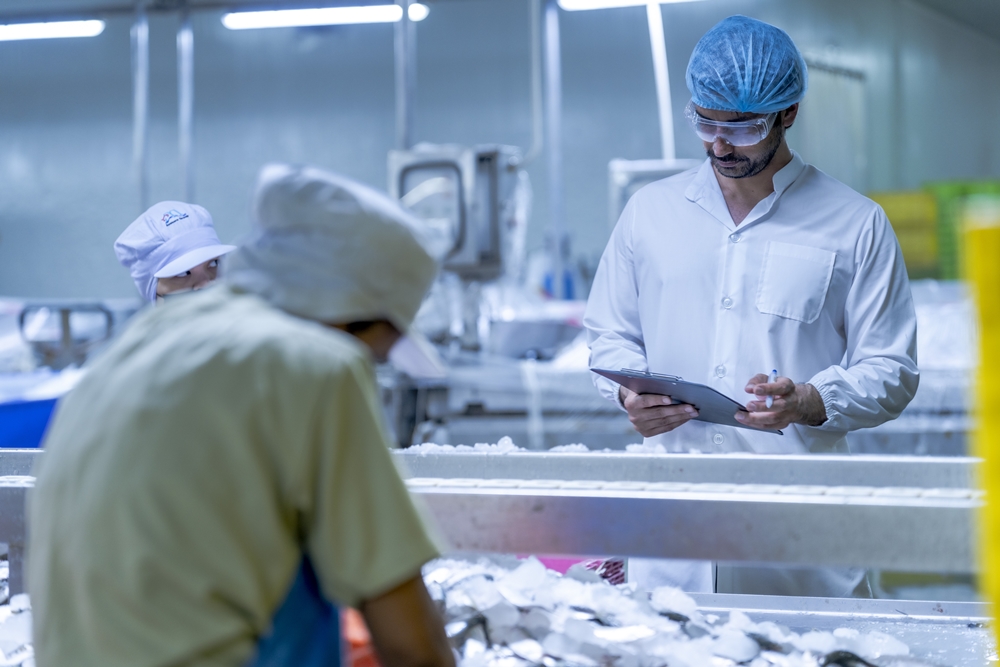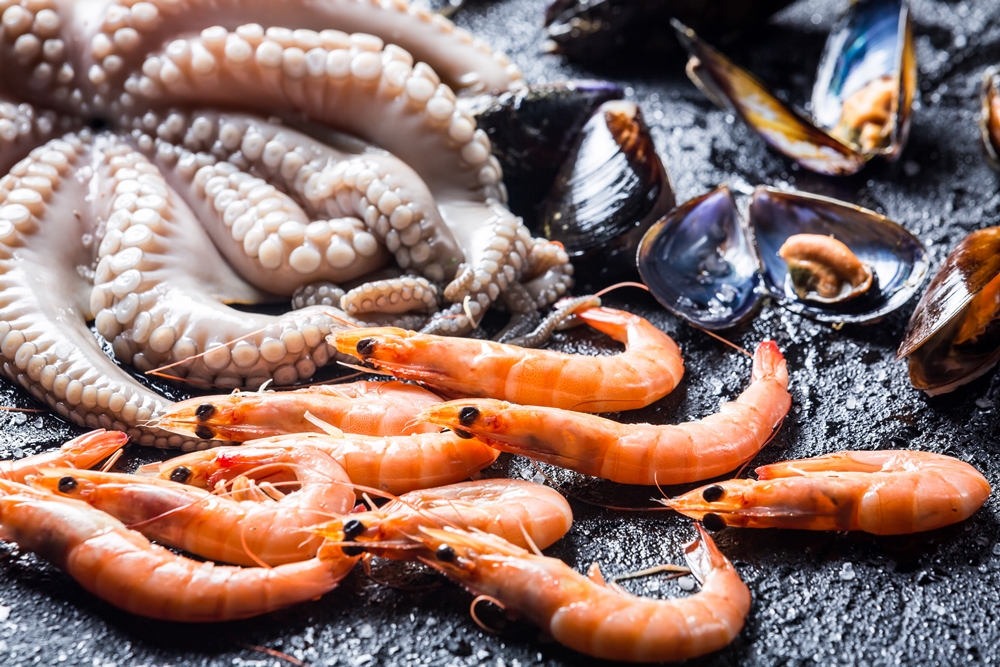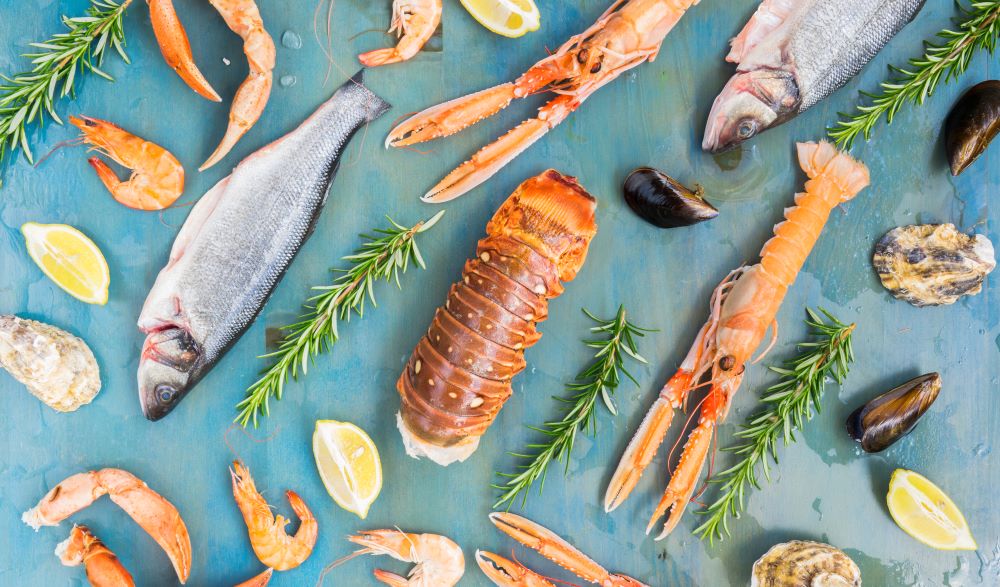In the modern seafood industry, phosphates are commonly used as additives to improve the quality and shelf-life of products. However, increasing consumer concerns about food additives and health implications have sparked interest in non-phosphate alternatives. This article explores the role of Seafood phosphate additive1 in seafood processing, their impact, and the benefits and drawbacks of non-phosphate alternatives, along with consumer perceptions of phosphate-free seafood.
Understanding Phosphates and Their Role in the Seafood Industry
Phosphates are chemical compounds containing phosphorus and are extensively used in industries like seafood processing. They act as preservatives by inhibiting microbial growth, thus preventing spoilage. Additionally, Phosphate for seafood2 helps to maintain the texture, appearance and moisture content of seafood products such as shrimp, fish fillets and lobster, keeping them plump and juicy during storage and cooking.
Moreover, Phosphate for seafood3 enhances the visual appeal of seafood by improving color retention, preventing discoloration and minimizing ice crystal formation. These benefits make phosphates essential for ensuring consistent product quality and extending shelf life in the seafood industry.

Impact of Phosphate usage in seafood processing4
Phosphates are widely used in seafood processing for their benefits, such as improving texture, moisture content and yield, particularly in high-value items like shrimp. However, concerns have arisen regarding the potential health risks linked to excessive phosphate consumption and certain health risks. These health concerns have led some consumers to avoid phosphate-treated products and seek natural alternatives. Additionally, some individuals find that phosphates can alter the flavor and texture of seafood, prompting some brands to explore phosphate-free options.
Major Impacts of Phosphate for Seafood5
- Improve texture and moisture content, enhance yield, especially in shrimp.
- Could be related to health considerations, potentially impacting kidney function, cardiovascular health, and bone strength.
- Growing consumer demand for phosphate-free, more natural alternatives.
- Potential alteration of seafood’s flavor and texture, reducing appeal for some consumers.
Benefits and Drawbacks of Non-Phosphate Alternatives
In addition to the widely used Phosphate for Seafood6 , the growing preference for healthier, more natural food options has led to the development of non-phosphate alternatives in seafood processing, such as salt, vinegar and natural proteins. These alternatives are believed to be safer and more natural by consumers. They are especially appealing for clean-label products without artificial additives. However, non-phosphate alternatives also come with benefits and drawbacks that are worth noting for all stakeholders.
Benefits of Non-Phosphate Alternatives
- Retain moisture in seafood while preserving texture and taste.
- Perceived as safer and more natural by consumers.
- Appeal to consumers seeking clean-label, additive-free products.
Drawbacks of Non-Phosphate Alternatives
- Excessive use of salt can result in an undesirable salty taste.
- Natural preservatives may not offer the same shelf life as phosphates, leading to quicker spoilage.
- Finding the right balance between natural preservation and product quality is challenging.

Consumer Perception and Demand for Phosphate-Free Seafood
Consumer awareness of food additives is increasing, leading to a growing demand for phosphate-free seafood, perceived as healthier and more natural. Studies show that “phosphate-free” labels can position products as premium, allowing for higher prices. This shift is pushing the seafood industry to innovate and find alternatives to Phosphate for seafood7 that meet both quality and health standards, as processors face pressure to adapt to consumers’ evolving preferences and concerns about food additives.
Definitely, Seafood phosphate additive8 is essential for maintaining seafood quality, texture and shelf life. However, rising demand for healthier, natural alternatives has driven exploration of non-phosphate solutions. While these alternatives offer benefits, they also present challenges. So, the industry must adapt to evolving consumer preferences while ensuring product quality and safety.

About Jirakorn
Whether you’re a seafood processor or a consumer seeking high-quality seafood quality enhancer9, reach out to us to learn how integrating phosphates can elevate your seafood offerings. At Jirakorn Co., Ltd., we have a great variety of food additives that meet both culinary expectations and safety standards.
With more than 50 good years of experience and expertise in manufacturing and distributing food additives for local and international suppliers, Jirakorn Co., Ltd. has never ceased to develop, research and improve our product quality, variety and operating standards. Since 1972, we have offered high quality seafood industry phosphates10 which include non-phosphates and mixed phosphates for frozen seafood, noodle products and processed meat products. All of which are certified Halal, GMP and HACCP.
Jirakorn Co., Ltd., the leader of food additive industry in Thailand, is proud to operate under compulsory regulations to provide high quality seafood quality enhancers11. Our MP-2 and MP-2 (new formula) are among our best-selling enhancers, which have been widely used by leading seafood exporters and suppliers. Understanding the functions and uses of phosphates will empower seafood processors to deliver superior products that meet the diverse needs of today’s consumers.
Whatever your demand for seafood phosphate additive12 would be, we can efficiently serve you with custom-blend orders using our technology, state-of-the-art manufacturing facility, innovative know-how and price-competitive product options. Feel free to discuss with us on how to take your seafood to another level.
Think Food Additives. Think Jirakorn.
Contact us today at
Jirakorn Co., Ltd.
Tel: 0 2259 6500-1, 0 2259 5297-8
Fax: 0 2258 3891
www.jirakorn.com

